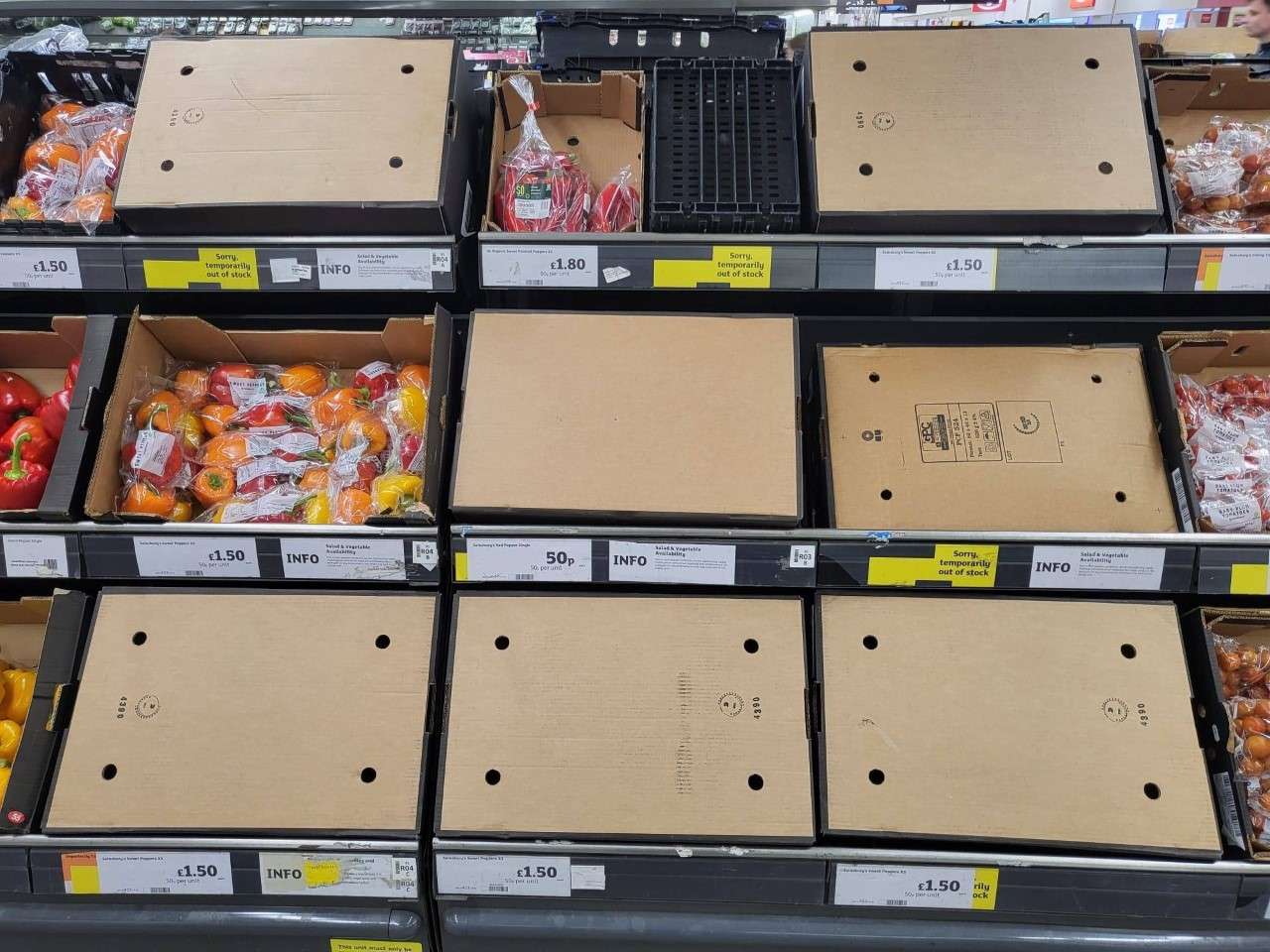By Ben Eagle; Acting Editor, Eat Farm Now.
With news breaking yesterday of a supermarket being embroiled in a major beef fraud investigation, after ‘large volumes’ of pre-packed meat and deli products from South America and Europe were found being sold as ‘best British beef’, it’s been another big week for food journalists.
Following our earlier pieces on the ‘shelfgate’ situation (available here and here) which covered the wider context behind the food shortages and empty shelves in fresh produce sections of supermarkets, we thought that we’d explore what has been covered on the story this week.
Two weeks ago (27th February) Defra Farming Minister Mark Spencer invited representatives from the major supermarkets to come together to discuss the situation. He asked them to ‘’look again’’ at how they work with farmers and the rest of the supply chain when it comes to sourcing fruit and vegetables, specifically “so they can further build our preparedness for these unexpected incidents”.
The issue is that this isn’t something that can be fixed overnight, and it is a symptom of a much bigger structural issue regarding food and farming. Until farmers and growers are able to properly invest in production systems there will continue to be issues with domestic supply, and the UK will face food security risks. Fixing this will require a reassessment of fairness in the supply chain, including the question of how profits are shared, but also an acceptance that food prices generally need to increase.
Food poverty is an increasingly visible issue across the UK. A recent report by the think tank The Food Foundation has demonstrated that 3.7 million children experienced food poverty in the UK in January of this year. That’s 21.6% of households, up from 11.6% of January 2022. This is a disgraceful statistic, and yet, as Jay Rayner has argued, asking producers to solve the issue by further cutting margins and the price that they receive for their produce is not the solution.
Producers are experiencing pressure like never before when it comes to balancing the cost of inputs such as energy and fertiliser versus the prices they receive for their produce. On top of this they face the pressure to invest in their businesses to allow for a more sustainable future, as well as mitigating their own climate impact, as well as that of the rest of us.
With added pressure also comes an increased risk of further problems.
As Professor Emeritus of Food Policy at City University, London, Professor Tim Lang inferred on this morning’s episode of Farming Today, the breaking news of the beef fraud investigation is a symptom of a food system and culture under immense pressure.
‘’Of course there is an incentive, particularly at a time of extreme pressures on vast numbers of the British public to get, quote on quote, cheap food; there is an incentive all the way down the food supply chain to cut corners and to enable something that is already nominally cheap to be even cheaper, so that more profits are being made where profits have been squeezed out. So, you’ve got a systemic tension here. It’s not just a few bad apples or great police work by agency X; you’ve got to have from the public health point of view everything working, and if some bits go wrong there are those pressures, which is why there are very fundamental issues about are we right as British food culture to constantly be demanding cheap food? Because you get what you pay for.’’
Producers need consumers to get behind them like never before. If this doesn’t happen, then the current food debate might just be the tip of the iceberg.
Also covered widely in the press this week have been food tsar Henry Dimbleby’s comments that the food shortages are due to Britain’s ‘’weird supermarket culture’’, and that we indeed have ‘’market failure’’. Mr Dimbleby points to UK lettuce prices being kept stable regardless of whether there is a shortage of supply or not. The market price is not given the flexibility that exists in other sectors, which impacts producers and ultimately confidence levels and investment.
Mr Dimbleby told The Guardian: “If there’s bad weather across Europe, because there’s a scarcity, supermarkets put their prices up – but not in the UK. And therefore at the margin, the suppliers will supply to France, Germany, Ukraine.”
However, the supermarkets would not agree with this stance. Andrew Opie, director of food and sustainability at the British Retail Consortium (BRC), which represents UK supermarkets, said retailers were “pragmatists and recognise they need to pay more when costs are high and product is short. They’re working with growers every day…UK retailers are doing everything they can to insulate consumers from rapidly rising prices meaning cutting their margins and negotiating on behalf of customers to keep prices as low as possible.”.
When it comes to the short term issue, it may seem that the situation is improving. Asda, Lidl and Morrisons have all lifted at least some of their restrictions on fresh fruit and vegetables. Indeed, Lidl will have lifted all restrictions by Monday. Morrisons has lifted its restrictions on cucumbers, but is still limiting tomatoes, lettuces and peppers to two per person.
However, the longer term picture is far from clear and the supply chain needs to work together to ensure a more stable situation in future. Farmers are already pointing to the potential for future reduced supply of potatoes and onions as well as potentially apples, with social media showing a number of orchards being broken up, and far fewer new trees being planted than normal.
The food shortages issue is most certainly not going away.

